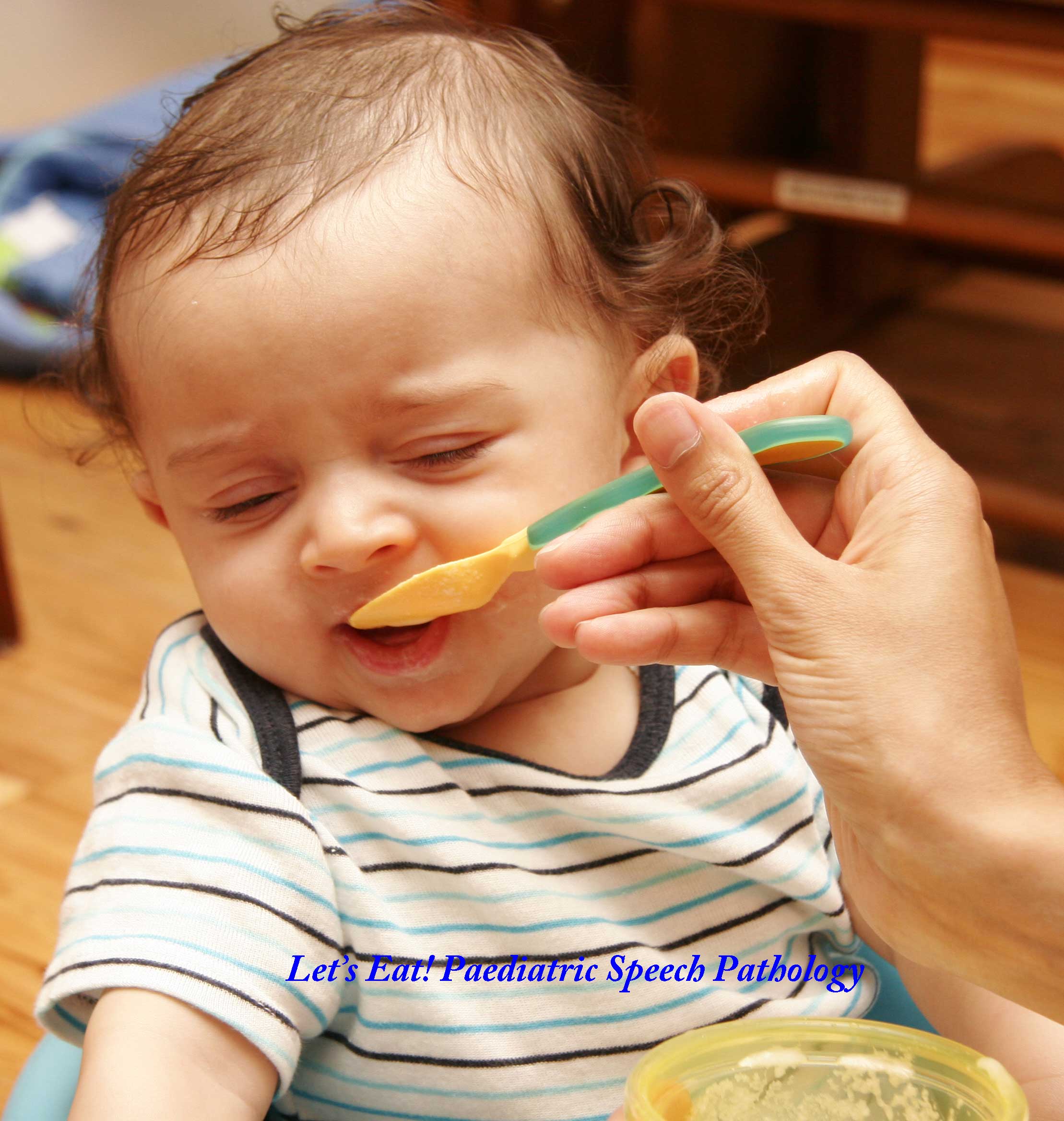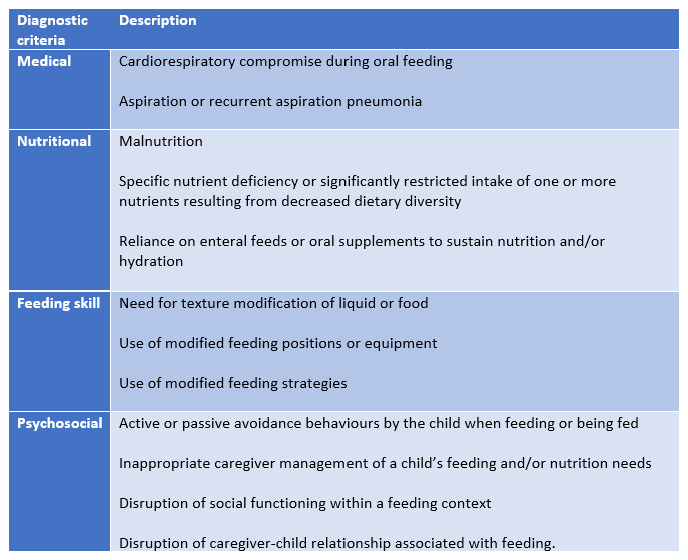
Paediatric Feeding Disorders and why you may see us using this term in your child’s feeding reports.
Up until recently, if you had a child with a feeding difficulty, your health providers may have termed it differently. A Speech Pathologist might have called it “delayed oral motor skills” while a Dietitian might have called it “nutritional concerns” and your Paediatrician may have called it “feeding difficulties”. These varying terms made it difficult to define clearly but also didn’t take into account the importance of team assessment across the domains and more importantly, the functional limitations of these difficulties.
Feeding Matters, an international organisation have been working over the last 2 years to create a universal definition and diagnostic criteria. This term Paediatric Feeding Disorders (PFD) was first published in Goday et al. (2019).
Why is it so important?
When looking at the research, the definition of “Feeding difficulties” can vary depending on the different disciplines. So how can we research feeding difficulties/ delays/disorders/concerns if we can’t agree on the definition? How do we measure it in regards to the rate of occurrence and impact on lives if we can’t define it? Do we call it a
- Feeding delay/difficulty/disorder?
- Selective eating / picky eating/ restricted eating/avoidant eater/fussy eater?
This new term PFD now brings into play the role of feeding as a multidisciplinary approach that combines both the roles and responsibilities of doctors and allied health but also acknowledges the impact of trauma and mental health around feeding.
So what does Paediatric Feeding Disorders (PFD) mean?
PDF is defined as impaired oral intake that is not age appropriate, lasting at least 2 weeks and associated with 1 or more of the following areas of dysfunction (Goday et al., 2019)

It is important to note that PFD is diagnosed in the absence of eating disorders and a pattern of oral intake that is not due to lack of food or related to cultural norms.
Feeding Matters on their website, have this diagram which summarises the inter-play of different factors involved in feeding difficulties.

What does this mean moving forward?
Very recently, the CEO of Feeding Matters (August 2020) published that PFD is now a stand-alone diagnosis (not a symptom!) and will be recognised as a specific diagnostic code in the International Classification of Disease (ICD) released on 1st October 2021. This big news is huge for not only for professionals working in feeding and researchers but for families who get the recognition of the impact of feeding difficulties on their child and the whole family unit.
For us at Let’s Eat, we always work as a team with our client’s paediatrician (and relevant specialists), Dietitian, Occupational therapist, Physiotherapist, Clinical Psychologist, Social worker, Play therapist, nursing staff, teachers and parents.
If your child fits the criteria and your child’s feeding team (people listed above), agree, then we will start using the term PFD listed under their diagnosis in their assessment reports. Because by using a consistent feeding diagnostic term, we will be able to advance clinical practice, research and health care policies but also finally recognise it as it’s own stand alone diagnosis.
My wonderful feeding mentor and supervisor told me about an article just released (Kovacic et al., 2020) that looked at the prevalence of PFD across America. It found an estimate of 1 in 23 and 1 in 37 children under the age of 5 years had PFD in the USA. Can you imagine how much clearer we will be able to track this across Australia and the world with a more unified definition? I am looking forward to the coming years of research and am grateful to organisations like Feeding Matters that are pioneering the way.
Lastly, as a parent, if you are worried about your child’s feeding, Feeding Matters has a wonderful online questionnaire for you to fill out and then print to take to your managing doctor to discuss the red flags and determine appropriate early intervention.
Until next time, wishing you connected and joyful mealtimes,
Val
About the author of this blog post
Valerie Gent is an Australian based Speech Pathologist with 17 years experience in Paediatric Feeding. She has opened a private practice called ‘Let’s Eat! Paediatric Speech Pathology’ in 2013 for Newcastle based babies and children with feeding difficulties. Valerie is passionate about working in the area of paediatric feeding and special needs and has been involved in the teaching and training of Australian Speech Pathology University students and allied health professionals. Prior to starting her private practice, she worked in acute paediatric hospitals in neonatal intensive care units, feeding clinics and clinics for children with special needs for 10 years. You can find out more about Valerie Gent and ‘Let’s Eat! Paediatric Speech Pathology’ via her website www.letseatspeech.com.au and Facebook page www.facebook.com/LetsEatPaediatric SpeechPathology or email her on valerie.gent@letseatspeech.com.au
References cited:
Goday, P. S., Huh, S. Y., Silverman, A., Lukens, C. T., Dodrill, P., Cohen, S. S., . . . Phalen, J. A. (2019). Pediatric Feeding Disorder: Consensus Definition and Conceptual Framework. Journal of pediatric gastroenterology and nutrition, 68(1), 124-129. doi:10.1097/MPG.0000000000002188
Kovacic, K., Rein, L. E., Szabo, A., Kommareddy, S., Bhagavatula, P., & Goday, P. S. (2020). Pediatric Feeding Disorder: A Nationwide Prevalence Study. The Journal of Pediatrics. doi:10.1016/j.jpeds.2020.07.047
